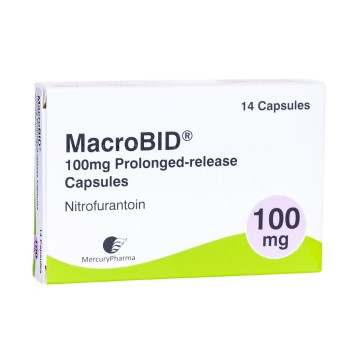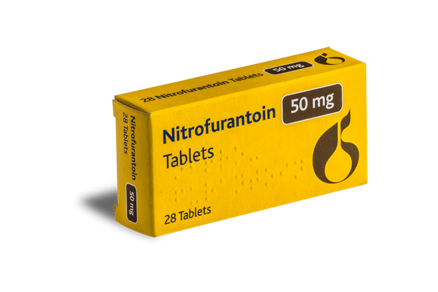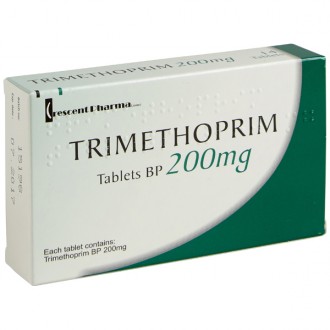Cystitis is a common type of urinary tract infection (UTI). Symptoms may include the need to urinate frequently and stinging while urinating. Cystitis is not usually serious or life-threatening, and mild symptoms often disappear independently.
We have a range of medications available on prescription that can clear cystitis.
The Different Types Of Urinary Tract Infections
As cystitis symptoms are more of an umbrella term for urinary tract infections, it's important to know the difference between a bacterial infection and non-infectious cystitis.
Bacterial infections are the most common form of cystitis, and they usually occur when bacteria enter the urinary tract. While they usually clear up alone, some people might need antibiotic treatment.
Non-Infectious Cystitis
While bacterial cystitis is the most common, other forms of cystitis occur due to outside influences rather than an infection. Painful bladder syndrome is complicated to treat, but it can cause extreme inflammation of the bladder.
Chemical cystitis often impacts people that are sensitive to chemicals and hygiene sprays. Bubble bath and some forms of soap are the main culprits. Another form of non-infectious cystitis occurs due to radiation treatment because it can create inflammatory issues with your bladder.
What Are The Causes Of Cystitis?
Cystitis is more common in women than men, and most infections occur when bacteria from the skin or bowel enter the bladder through the urethra. A female's urethra is shorter than a man's, making it easier to develop cystitis.
Some causes include:
-Wiping your bottom from back to front when going to the toilet
-Transfer of bacteria during sex
-Having a urinary catheter
-Not emptying your bladder properly
While cystitis can impact anyone, certain people are more at risk. If you're pregnant, your ability to urinate effectively can mean you don't empty the bladder properly, leading to cystitis.
People with diabetes also have a stronger chance of getting a UTI, and gallstones can interfere with urine flow. Men usually get cystitis if they have an enlarged prostate gland, but it's significantly more common in women.
If a person has HIV or is receiving treatment for cancer, they're more prone to cystitis are their immune system won't be as effective as someone without these conditions.
Finally, if you use bladder catheters regularly, you'll be more vulnerable to bladder infections.
Symptoms
Symptoms are typically mild. However, they can be pretty uncomfortable. These usually include:
-Dark or cloudy urine
-Pain in the bladder
-Pain or stinging when urinating
-An urge to urinate frequently
-Traces of blood in the urine
It's also important to mention that children can also get cystitis symptoms, which include:
-Irritability
-Wetting themselves
-A high temperature
-Decrease in appetite and feeling sick
How To Treat A Bladder Infection
Cystitis is typically self-limiting, and symptoms can pass within a few days. However, if symptoms do not clear on their own, antibiotics can be given to help treat the infection. Let's take a look at the different ways you can treat cystitis.
Home Treatments
Most people will try to ease symptoms at home, and this is a good idea for mild cystitis as it usually corrects itself within a few days. You should take paracetamol and use hot water bottles to relieve pelvic pain.
Make sure you drink plenty of water and stay away from alcohol, fruit juices and fizzy drinks because water will flush your system out, but other drinks can prolong the symptoms of cystitis.
You should also avoid having sexual intercourse and wait until it goes away. In most cases, if you have an uncomplicated urinary tract infection, the symptoms will subside without antibiotics.
Go To See Your GP
If you try the above and the symptoms of cystitis don't go away, it's a good idea to go and see your doctor. Most will ask about your symptoms and take a urine test - however, some might prescribe a short course of antibiotic treatment.
Access Medication Online
If cystitis is getting you down and home remedies yield no results, we can offer treatment for cystitis here at Pharmacy Online, so please contact us should you need antibiotics to help.
Antibiotics are the best way to treat an infection and prevent it from coming back. The most effective medicines for cystitis include:
Macrobid: Oral medication to take twice a day. These tablets are usually prescribed as a short course of antibiotics.
Nitrofurantoin: Another oral antibiotic that you'll take twice a day. In most cases, you'll receive a three-day course, but if you have severe symptoms, your GP might recommend a seven-day course.
Trimethoprim: This medication is less popular than Nitrofurantoin, but it's still one of the go-to choices to treat infections in the urinary system.
Recurrent Cystitis Treatment Options
In rare cases, UTIs could be a common problem that returns frequently, regardless of any antibiotics prescribed. If sexual intercourse usually results in a urinary tract infection, a doctor might prescribe an antibiotic that you can take straight after to lower the risk factors of developing cystitis.
For long-term treatment, you might be offered a low dose antibiotic for a few months or a vaginal cream that contains oestrogen - which is mainly for menopausal women.
Preventing Urinary Tract Infections
While most women will get UTI symptoms at some point in their lives, it's worth looking at how you can prevent it if you get cystitis frequently. Some minor lifestyle changes can make a big difference.
Urinate When You Need To
A lot of people put off the urge to urinate, but going when you feel the need to can prevent infections from occurring. You should also use the bathroom after being sexually active.
Wash Gently
All specialists recommend that people not use harsh soaps to wash their genitals. Vaginas are self-cleaning, so there's also no need to douche.
Wipe From Front To Back
Wiping from front to back minimises the risk of any bacteria entering your vaginal area.
Drink Plenty Of Fluids
While some people believe cranberry juice can effectively treat and prevent cystitis, there are conflicting opinions. However, it can be beneficial for older women to try for cystitis. Make sure you drink a lot of water each day to flush your system and moderate your alcohol and soda intake.
The Potential Complications Of Frequent Cystitis
Most cases of cystitis usually go away on their own or clear up due to antibiotics. However, in rare circumstances, there could be complications that lead to further infections. A kidney infection usually occurs if a bladder infection is left untreated, and in severe cases, it can cause long-term damage to the kidneys.
Another possible complication is blood in the urine, but it will clear up with the proper treatment. This is particularly common when having radiation therapy, and if the blood doesn't clear up, you might have to see a specialist for further support.
Treat Your Urinary Tract Infection At Pharmacy Online
We know it can be challenging to get to the GP surgery now, and many people are left without treatment due to long waits and a lack of available appointments. At Pharmacy Online, you can access the most effective cystitis treatments without putting yourself out.
Our fully registered pharmacy offers a range of services, including a free online assessment so you can find the best medication for your needs. Better still, when you complete our assessment, and we approve the medication, you'll receive it straight to your doorstep.
With us, there's no waiting in line at the pharmacy, zero inconvenience and a reputable service run by qualified and registered pharmacists.








